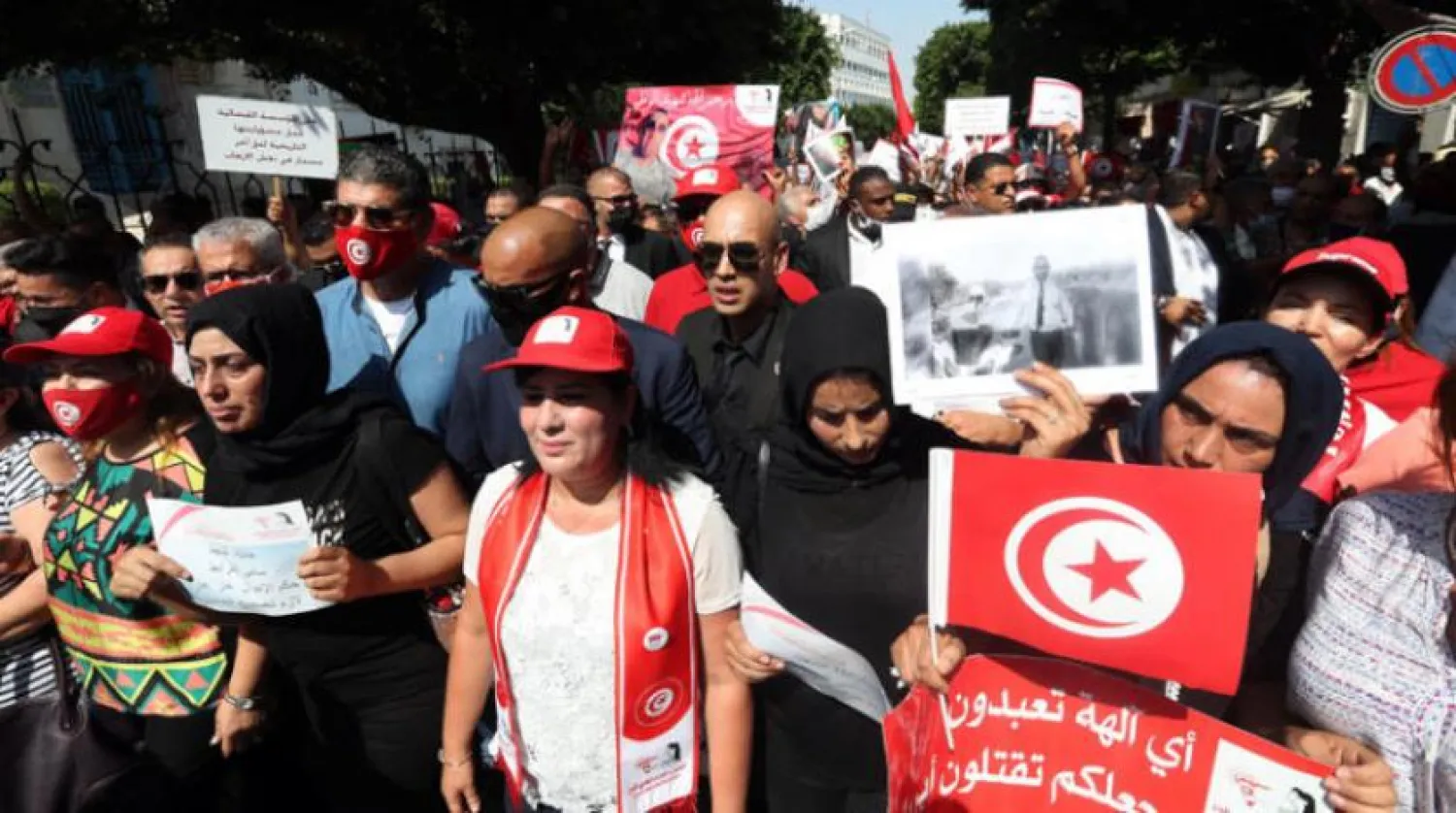The opposition Free Destourian Party (PDL) has proposed a new bill for transitional justice in Tunisia.
It urged the parliament to urgently consider this proposal in accordance with Article 92 of the Parliament's internal system.
The draft law includes a call to drop judicial prosecutions against perpetrators of human rights violations against victims over time and recover financial compensation for these violations in case their perpetrators commit terror-related acts.
These come in response to the Truth and Dignity Commission’s demands to implement a comprehensive reconciliation after perpetrators admitted to committing violations apologized and agreed to provide financial compensation for victims.
The parliamentary PDL’s bloc considered this bill an attempt to “put an end to the systematic exploitation of the transitional justice issue.”
Many parties have been seeking to “control the political scene, falsify public opinion, adopt a policy of double standards with those who assumed responsibility before 2011, according to narrow personal interests and political benefits,” said PDL Head Abir Moussa.
According to the bill, the judiciary shall preserve its full independence in investigation and decisions, non-binding opinions and investigations of the Truth and Dignity Commission with its probes, and revoke all decisions issued by the commission itself after the end of its term, as well as create a committee to guarantee the rights of the state and citizens in a comprehensive audit of the sums paid from public money.
It stipulates creating a database for compensating beneficiaries, enabling the state to retrieve compensations paid illegally in case of new evidence proving the inaccuracy of the facts that were relied or in case the beneficiary committed terror-related crimes.
In this regard, Tunisian political analyst Jamal al-Arfawi told Asharq Al-Awsat that the draft law will see strong opposition from those affected during the rule of former presidents Habib Bourguiba and Zine El Abidine Ben Ali if the principle of dropping the lawsuits is applied over time.
The Islamic current would specifically oppose it since it was the most affected during the previous rule, in addition to figures from the left and national leaders.
Arfawi further stressed that the PDL continues through this bill to tighten the grip on representatives of political Islam.









